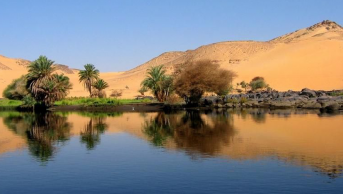ABCDEF of Water Management: What does it mean for the Middle East?

In a seminal work, Perry (2008) argued that water management incorporates a number of elements, in forms of processes or practices. He called these “ABCDEF” of water management. Following is a synopsis what ABCDEF of water management is about:
Hydrological information on the availability of surface and groundwater available to society (Assessment). The political process through which society decides on the principles for allocatingavailable water resources (Bargaining). The legal process that translates policy into rules and regulations defining the water services to various use groups (Codification). The empowerment of agencies (government, private, cooperative, etc.) responsible for delivering water services (Delegation) institutions. The construction of infrastructure necessary to deliver water to users (Engineering). The effectiveness of adaptive measures through monitoring and evaluation (Feedback).
Discussing the situation in the Middle East vis a vis these criteria is what we now turn.
With respect to the “Assessment”, countries of the region largely lack thorough and up-to-date analyses and data of the availability of and changes in water resources. Lack of reliable data has always been mentioned as a big obstacle in developing sound water management policies in the Middle East not only at the national level, but also at the transboundary level. The expected impacts of climate change necessitate even more critical examinations of the scenarios on future status of water in the region. Creation of reliable data will be the foundation stone for subsequent actions. Gulf countries and Israel are notable exceptions, which are rigorously studying on assessing their water scenarios.
The Bargaining dimension presents a mixed picture. On the one hand, many countries in the region have either autocratic dictatorships, or kingdoms, with limited participation of society at large to the political processes. Elections in these countries are far from the ones that are experienced in democracies where people have a say in decisions regardless of the level of application (local, regional, country-wide). Israel and -to a great extent- Turkey could be regarded as the most developed countries with regards to this dimension. In these countries, political arenas are more diversified with various stakeholders.
Codification is generally subordinate to the political processes. However, sometimes legal institutions -such as courts- may say the final word, independent of the political priorities. For such a case, “rule of law” should prevail if courts would be able to decide contrary to what politicians had previously decided (or dictated). In the Middle East, politics is the main actor in codification with quite limited role for legal authorities. In more concrete words, as a rule of thumb, one cannot easily expect a court in the Middle East to be the real and final arbiter of matters.
Delegation is confined to official institutions. While public involvement is high, private or cooperative schemes are quite rare. In last three decades, some Middle East countries transferred most of their public irrigation networks to user associations. However, the success of these transfers is questioned in the sense that government contribution continue to be vital for user associations’ survival. Despite the overwhelming role of public, privatization, another form of delegation, is gaining more currency in recent years, since public authorities have gradually become inefficient to bring services that are required by growing socio-economic needs. However, as seen in Saudi Arabia’s privatization of municipal water supply services, a strong wave of criticism is also growing, when private companies fall short of expectations and are unable to improve water services.
It could be argued that “Engineering” is the most developed dimension of the ABCDEF across the region as a whole. Countries tend to see construction works as the main solution to their water needs. With exceptions of oil-rich Gulf-States and Israel, prevalence of agriculture in most of the countries necessitates supply augmentation. Since food security is translated into water supply security, Middle East countries have been involved in dam building in order to reserve substantial volumes of freshwater and, distribution networks’ construction in order to keep water going, regardless of the efficiency of these infrastructures.
Feedback is somewhat limited to updated reports on the status of available water resources. The quality of these official reports and the reliability of data therein are questionable. Developing adaptive measures is not a common practice. For most of the cases, highly bureaucratic management structures cause a sluggishness in reform.
In short, the ABCDEF of water management looks crippled in large parts of the Middle East. With few exceptions, countries of the region are heavily indulged in “E”, i.e. engineering activities, seeing them as the main way out of the water problem. Looking at the region as a single unit, there are only sporadic examples where other pillars of water managements are given due consideration. Combined with the socio-political cultural tenets, hydro-climatic conditions contributed the development of a paradigm where supply-side of water management asymmetrically engulfed other pillars. Moreover, such a water management framework is contributive to transboundary water problems, too.









